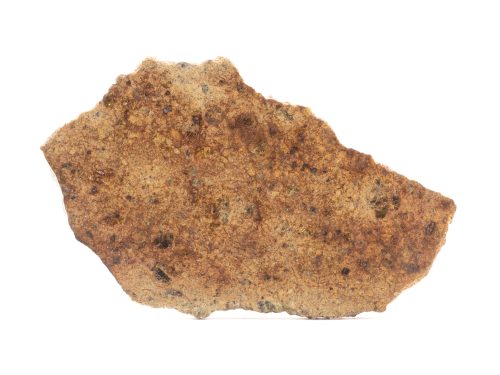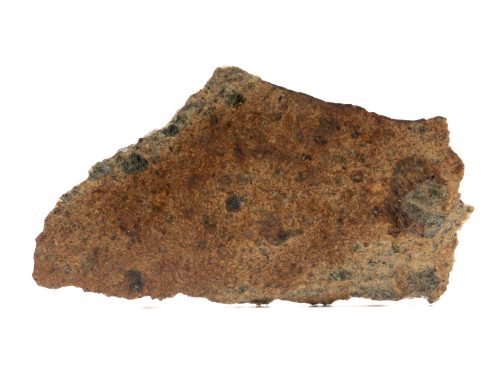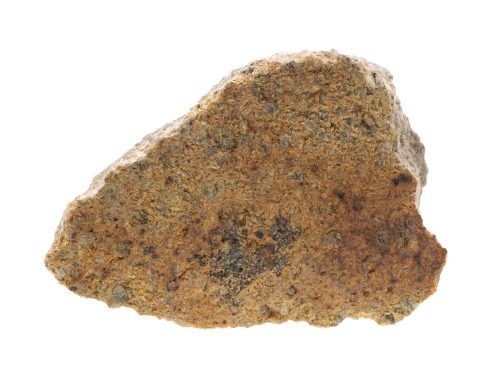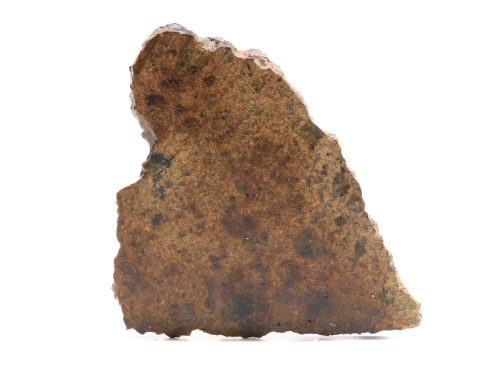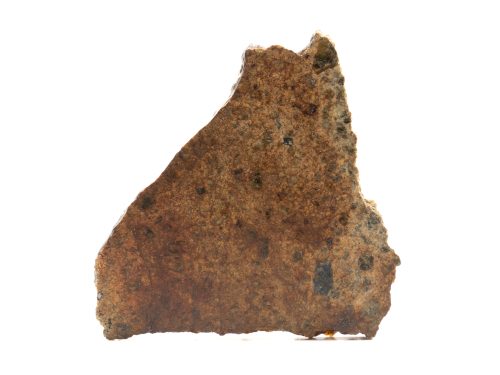Northwest Africa 11342 | Diogenite
Diogenites are a fascinating rock type — they are thought to be of plutonic origin. In both terrestrial and extraterrestrial geology, plutonic rocks are intrusive igneous rocks. That means they were once lava, but instead of being thrown out by a volcano and cooling on the surface, they cooled slowly underground. Slow cooling means they had time to grow large crystals which are often green in color.
The other Vesta meteorite types — howardites and eucrites — journeyed to Earth from a giant asteroid’s surface, but diogenites are different. They originated deep underground and were delivered here on because of the catastrophic meteorite impacts that occurred on Vesta (or a Vesta-like asteroid known as a vestoid) in the distant past. Diogenites are cooled crystalline magma (or lava), excavated from deep inside the asteroid by a meteorite impact so tremendous, it blasted right through the crust to the interior. The excavated material was expelled into space and some of it eventually landed on Earth as diogenite meteorites.
Only a single stone of NWA 11342 was found in Morocco in 2017, and these complete laboratory-prepared slices were taken from it. NWA 11342 was classified by Aerolite Meteorites through the Institute of Meteoritics in Albuquerque, NM and the type specimen remains in their permanent collection.
Showing all 5 results
